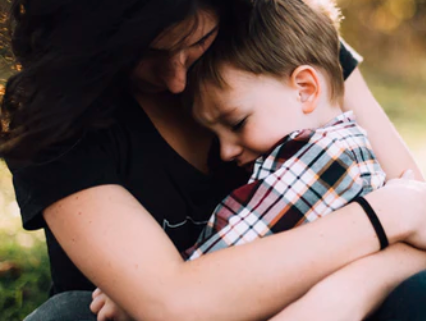How to Speak With Your Kids About Grieving the Loss of a Loved One
Everyone knows that children are much more fragile than adults. Hence, they cope with the painful loss of a loved one a lot more differently than grown-ups. However, you must also consider that your children may be a lot more mature than you think. Never underestimate their mental faculties and level of understanding.
That being said, communicating with your kids can help them handle intense emotions. After the funeral or cremation services, you must find time to speak with your children to assist them in their grief journey. To help you out, consider these helpful tips to make the conversation smooth and seamless to handle.
Think About Your Selection of Words
Though you may feel tempted to cushion the devastating blow with a few choice words, be mindful as some words create confusion. For example, young kids may not understand what “passed away” means. In the same token, resist the urge to sugarcoat death by associating it with sleeping. Saying their favorite relative “went to sleep forever” may form negative connotations with sleep. Though it may be difficult, it is better to be straightforward. You can try the following phrases:
- “I have terrible news. Your Aunt died today.”
- “Your Granny’s heart is very sick, and she died.”
- “Popo was in a car accident on the way to the store. Though they tried to save him, he was very hurt and died.”
Give your children time to digest and take in the words that you just spoke. Most of all, do not delay the conversation. Be mindful in ensuring that you give them ample information that they can handle. It would help to not say more than what’s necessary because it can be overwhelming.
Provide Physical Comfort
After breaking the news, listen to what your kids have to say. Give them comfort in the form of hugs and kisses. Provide reassuring words and continue encouraging them to speak about their feelings. They must feel free to share their thoughts and opinions so they can vent out their heavy emotions. You can use the following helpful phrases as conversation prompts:
- “I know you are very sad about your aunt’s death. I am very sad too.”
- “Grandma loved us. And we love her. It’s okay to cry and miss her.”
- “No one can promise not to die. But I will do my best to make sure we are happy during our times together.”
Do not hide your emotions from your children. Let them see you cry because it shows that you are a human being with feelings. Besides, it reinforces the idea that crying is healthy and not a sign of weakness. For best results, explain why you are crying and letting your feelings out in this manner.
Like you, children can also feel other things like anger at the sudden loss. They can also feel scared, especially when the death is tragic. Thus, as the parent, you need to keep a listening ear and offer constant reassurance when your kids feel vulnerable. Remember to keep an eye out for non-verbal cues, as well, because sometimes, they may not say it, but it will show in their behavior.
Discuss About Funeral Rites and Rituals
If your kids are already of age to attend and participate in the funeral or cremations services, discuss what will happen. You may need to explain what they can expect from a burial or direct cremation.
So they can be active participants in saying goodbye to your deceased love one, you can ask them to play a role. For example, allow them to select funeral songs, poems, or flowers to be used in the ceremony. On top of that, if they are old enough to read, you can ask your kids to read bible verses or readings during the religious services.
If you have younger kids at the services, you may need to assign someone to take them out on breaks. A long service may be too much for a smaller kid’s attention span. Find someone that both you and your children trust so you can have peace of mind. This way, you can focus on the services instead of worrying about running after your kids.
The Final Wrap Up
You must not overly protect your children from the concept of death because it is an inevitable part of life. Sheltering them too much is a disservice because they will have a harder time coping. Instead, keep your communication lines open and suggest ideas on how they can respond when someone else gives their condolences.
Whether it’s the loss of a parent, grandparent, uncle, aunt, cousin, classmate, or even pet, accept that the grieving process will be difficult. Besides, every child, just as every adult, will mourn and cope in their own way. And that’s okay!









